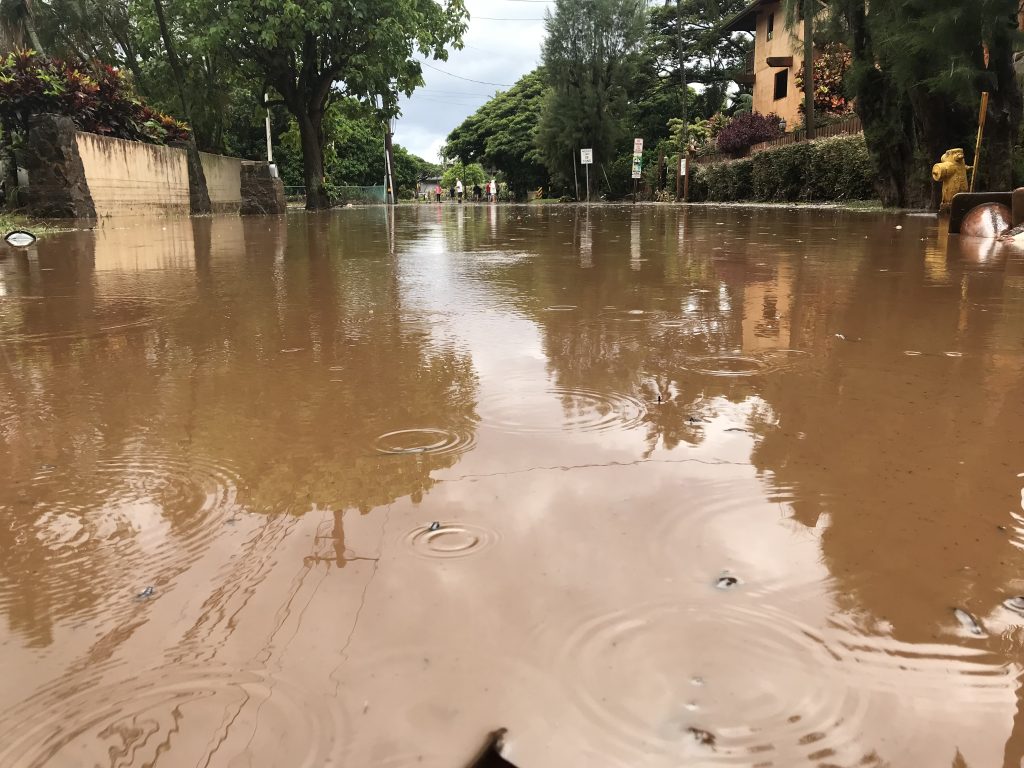Highlights of Bipartisan Federal Infrastructure Investment and Jobs Act

On Friday, Nov. 5, the US House of Representatives passed the Senate version of the $1.2 trillion Infrastructure Investment and Jobs Act, a once-in-generation bipartisan infrastructure bill that will create millions of jobs and deal with the climate crisis while turning it into an economic opportunity. Hawaiʻi’s two representatives, Ed Case and Kaialiʻi Kahele, both voted in favor of the bill.
The US Senate passed the Act in August. The bill now is on the desk of President Joe Biden to be signed into law.
“Let it be known: Democrats have delivered. Now we must put these dollars to work immediately here in the islands because our infrastructure needs are so great,” said Tyler Dos Santos-Tam, Chair of the Democratic Party of Hawaiʻi. “Not only is this a historic opportunity to make critical repairs to roads and bridges, but the bill will deliver broadband access for all, climate-resilient and disaster-resilient infrastructure, and upgrades to our power grids to prepare for a zero-emissions future.”
According to the Democratic Party of Hawaiʻi, major highlights of the Infrastructure Investment and Jobs Act for Hawaiʻi include:
- Repair and rebuild Hawaiʻi’s roads with a focus on climate change mitigation, resilience, equity and safety for all users, including cyclists and pedestrians. In Hawaiʻi there are more than 664 miles of highway in poor condition. Since 2011, commute times have increased by 9.7% in Hawaiʻi and on average, each driver pays $818 per year in costs due to driving on roads in need of repair. Based on formula funding, Hawaiʻi would expect to receive $1.2 billion for federal-aid highway apportioned programs over five years.
- Repair and rebuild Hawaiʻiʻs 84 bridges that are in poor conditions. The new Act is the single largest dedicated bridge investment since the construction of the interstate highway system. Based on formula funding, Hawaiʻi would expect to receive $339 million for bridge replacement and repairs over five years. Hawaiʻi can also compete for the $12.5 billion Bridge Investment Program for economically significant bridges and nearly $16 billion of national funding in the bill dedicated for major projects that will deliver substantial economic benefits to communities.
- Improve healthy, sustainable transportation options across the state. 20% of transit vehicles in the state are past useful life. Based on formula funding, Hawaiʻi would expect to receive $312 million over five years.
- Build a network of electric vehichle (EV) chargers to facilitate long-distance travel and provide convenient charging options. The bill invests $7.5 billion to build out the first-ever national network of EV chargers in the United States and is a critical element in the Biden-Harris Administration’s plan to accelerate the adoption of EVs to address the climate crisis and support domestic manufacturing jobs. Hawaiʻi would expect to receive $18 million over five years to support the expansion of an EV charging network in the state. Hawaii also will have the opportunity to apply for the $2.5 billion in grant funding dedicated to EV charging in the bill.
- Help connect every American to reliable high-speed internet. 12% of Hawaiʻi households do not have an internet subscription, and 1 in 50 Hawaiʻi residents live in areas where, under the FCC’s benchmark, there is no broadband infrastructure. Hawaiʻi will receive a minimum allocation of $100 million to help provide broadband coverage across the state, including providing access to the at least 33,000 Hawaiʻi residents who currently lack it. Additionally, 280,000 or 21% of people in Hawaiʻi will be eligible for the Affordability Connectivity Benefit, which will help low-income families afford internet access.
- Prepare more of our infrastructure for the impacts of climate change, cyber attacks and extreme weather events. From 2010 to 2020, Hawaiʻi has experienced 145 extreme weather events, costing the state up to $921 billion in damages. Based on historical formula funding levels, Hawaiʻi will expect to receive $4 million over five years to protect against wildfires and $11 million to protect against cyberattacks. Residents of Hawaiʻi will also benefit from the bill’s historic $3.5 billion national investment in weatherization to reduce energy costs for families.
- Deliver clean drinking water to every American and eliminate the nation’s lead service lines and pipes. Currently, up to 10 million American households and 400,000 schools and child care centers lack safe drinking water. Based on the traditional state revolving fund formula, Hawaiʻi will expect to receive $390 million over five years to improve water infrastructure across the state and ensure that clean, safe drinking water is a right in all communities.
- Improve our nation’s airports. The United States built modern aviation, but our airports lag far behind our competitors. Airports in Hawaiʻi would receive approximately $246 million for infrastructure development over five years.










